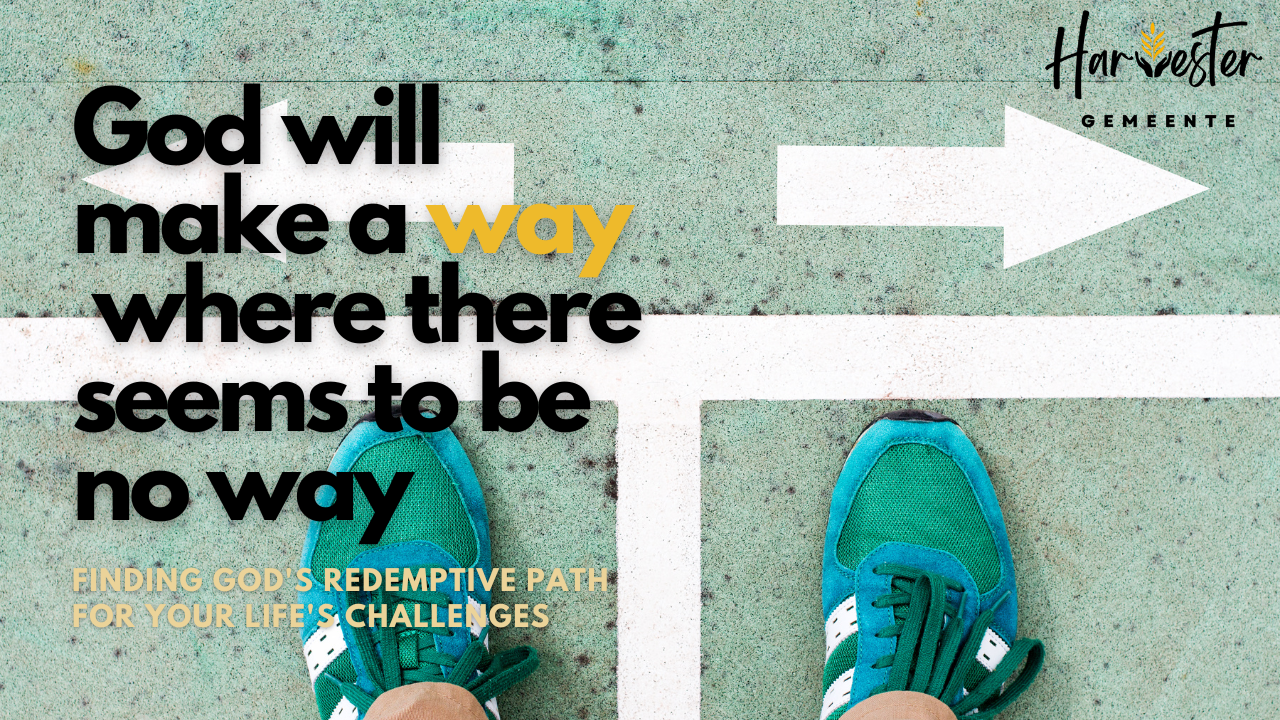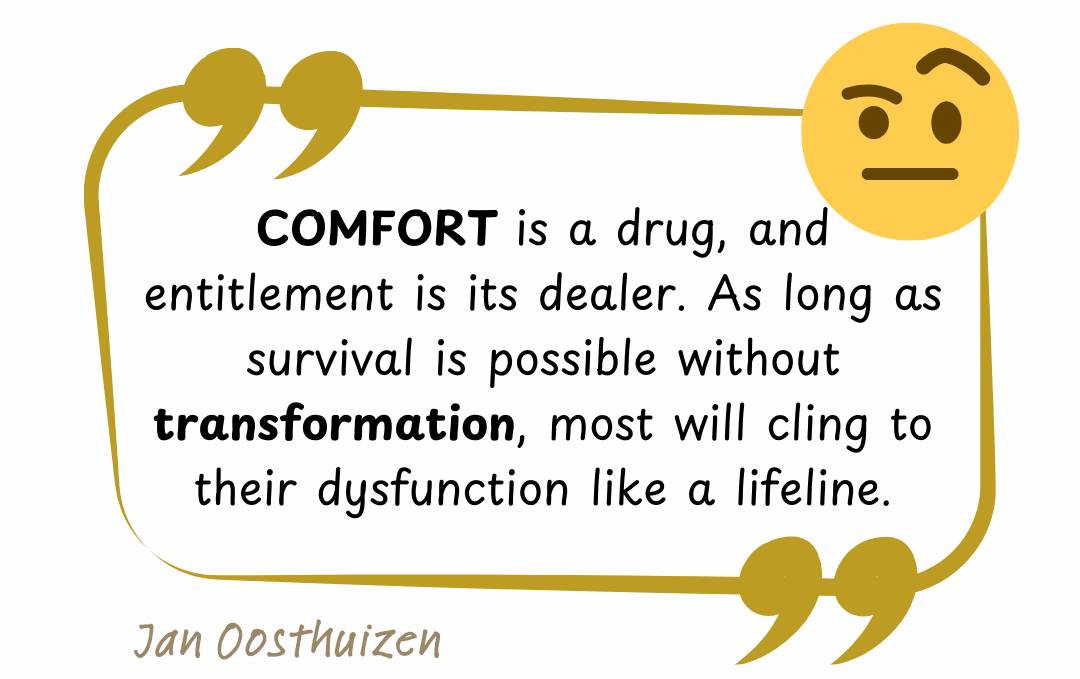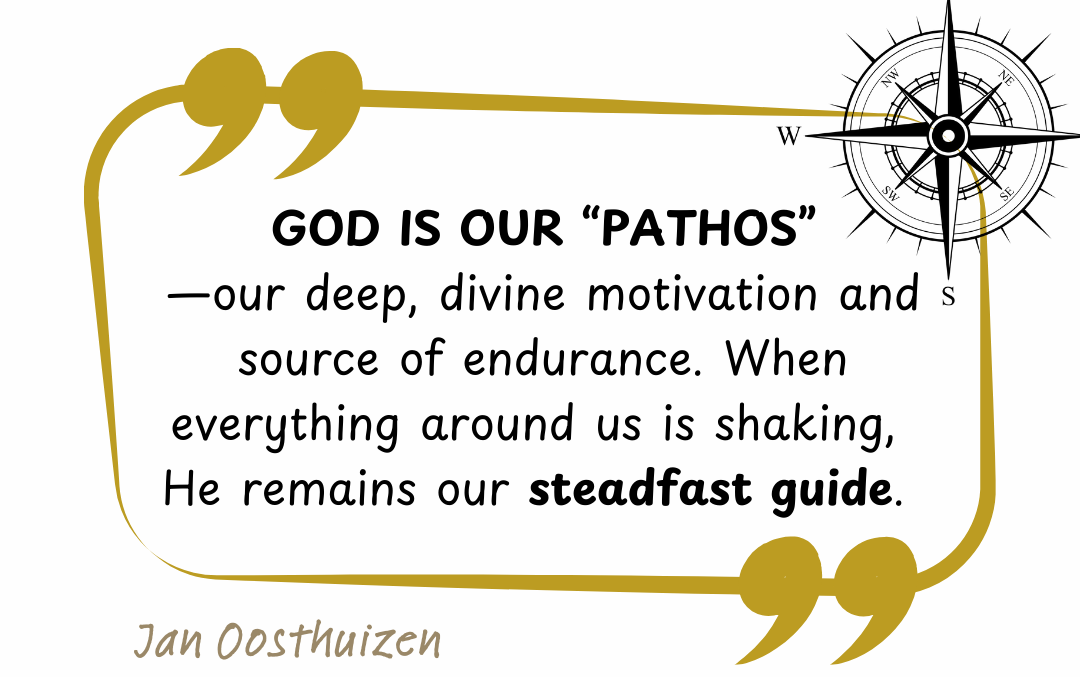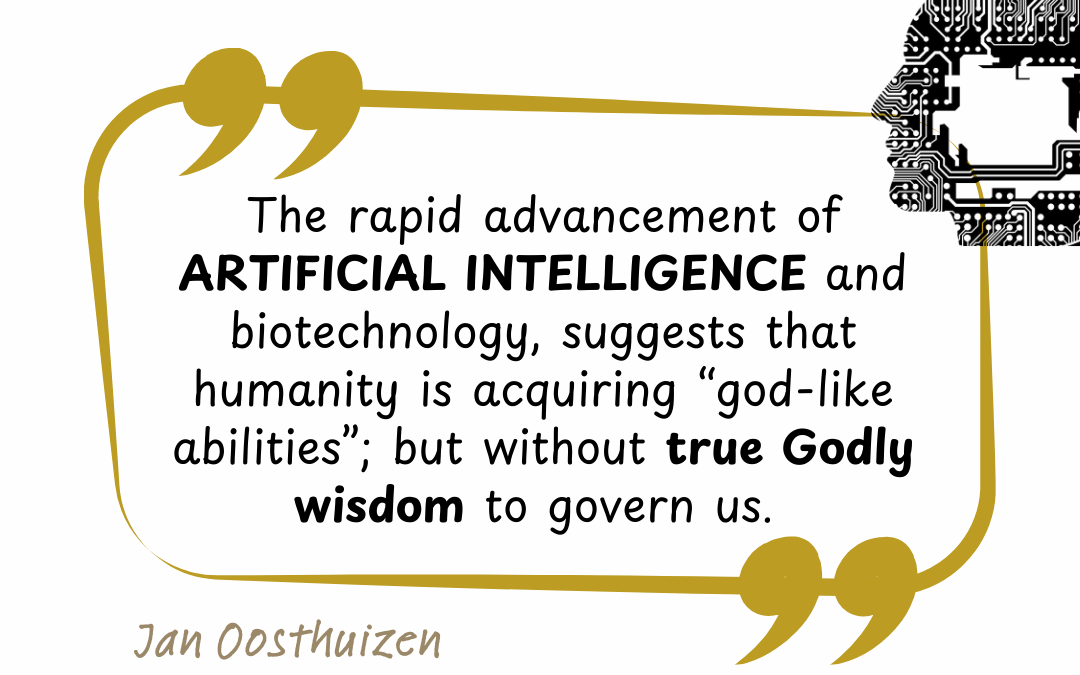God Will Make a Way Where There Seems To Be No Way
We’ve all been there—staring at our screens, trusting GPS to guide us. It’s convenient, yet we’ve lost the ability to find our way by memory. Without it, we feel lost and disoriented. Isn’t this the modern soul?

Seeking God's REDEMPTIVE PATH for your Life's Challenges.
We’ve all been there—staring at our phone screens, blindly trusting Google Maps to lead us through unknown streets. It’s convenient, no doubt. Yet have you noticed how we’ve lost the ability to find places by memory? Without GPS, we feel lost, disoriented, unsure of the way. Isn’t this a perfect picture of the modern soul? We rely on quick fixes, instant directions, and external voices to guide us, but deep down, we’ve lost our internal compass. The same is true spiritually—without God’s redemptive path, we wander aimlessly, following paths that lead to dead ends. But here’s the good news: God has already mapped out the way to life. The question is—are we willing to follow His directions, or are we stubbornly clinging to our own faulty sense of direction?
Life is filled with immense challenges! In a single moment, the news of a terminal illness can turn everything upside down. But perhaps the most relentless challenge of all is economic hardship.
South Africa Is On a Destructive Path
South Africa is in deep trouble—not because we lack resources or potential, but because our politicians don’t know how to create wealth. They only know how to redistribute it through taxation, taking from those who produce and giving to those who don’t. No wonder many of us feel exhausted, discouraged, and disillusioned.
The glorification of victimhood that our government has embraced—choosing to be the ultimate welfare state—has bred a culture of entitlement without substance. We are raising a generation that expects rewards without effort, benefits without responsibility, and success without sacrifice. But history proves that no society can thrive on handouts alone. If we want true restoration, we must urgently reject this path of passive dependence and rediscover the power of self-mastery, grit, and personal responsibility. It’s time to roll up our sleeves, work hard together, and reclaim the dignity that comes from perseverance, discipline, and shared effort.

The figures and stats speak for itself - on exactly how unsustainable this approach and path has been:
· Employed Individuals: Approximately 16.9 million (around 26.4% of the total population).
· Unemployed (Actively Seeking Work): Approximately 8.0 million (12.5% of the total population).gov.za
· Not Economically Active: Approximately 16.5 million (25.8% of the total population).
· Social Grant Recipients: Approximately 28 million (43.8% of the total population).
The sobering reality is; People do not change easily—especially when they don’t have to! Comfort is a drug, and entitlement is its dealer. As long as survival is possible without transformation, most will cling to their dysfunction like a lifeline. But history is clear: civilizations rot from complacency long before they collapse from crisis. True change demands discomfort, urgency, and the raw courage to break free from the chains of passive existence. The time for excuses is over—it’s either wake up and rise, or decay and fall.

The truth is, very few people truly understand how to generate wealth. And even those who do will tell you—it’s an uphill battle. It requires making thousands of correct decisions, consistency, knowing when to take risks, and getting the timing right. On top of that, it demands cultivating a vast network of relationships and, most importantly, building trust.
The world feels like it’s on the brink of collapse. International geopolitics are unravelling, culture wars are raging, physical wars are escalating, and the battle between nationalism and multiculturalism, meritocracy and democracy, state capture and empty political promises is reaching a boiling point. Add climate change hysteria to the mix, and it’s no wonder people feel like we’re living through the apocalypse.
But here’s the good news: this disruption is not the end—it’s a necessary reset.
For too long, we’ve drifted from the values that built history's most prosperous and free societies. The past five decades of extreme wealth were not accidents of progress but the fruit of Christian virtues—integrity, hard work, personal responsibility, and moral order. Now, as the current humanistic and secular worldview systems crumble under the weight of corruption and entitlement, the world is being forced to rediscover the principles that genuinely sustain civilization. This shaking is not our downfall—it’s our opportunity to rebuild on a foundation that lasts.
For instance - Foundational decisions—such as: discovering one’s vocational calling; building a strong marriage; raising a thriving family; and committing to a faith community—aren’t just personal choices; they are the bedrock of a healthy civilization. These four pillars create stability, resilience, and purpose, forming the backbone of flourishing societies. History and economics prove that those who prioritise these fundamentals don’t just build meaningful lives—they also become the highest income earners.
In this era of severe judgment and upheaval, where scarcity grips resources, famine spreads, wars erupt, and pandemics loom, everything that can be shaken is being shaken—leaving only what is unshakable to stand (Heb 12:27). The systems we once trusted are crumbling, exposing their fragility.
So, the pressing question is this: What is the right path to navigate this imminent crisis?
God is our Pathos—our deep, divine motivation and source of endurance. When everything around us is shaking, He remains our steadfast guide.

"I am the way, the truth, and the life" John 14:6
Let's dig deeper into this Foundation!
Different PATHS
Throughout Scripture, we see two dominant paths:
- The Path of Life - You will show me the path of life; In Your presence is fullness of joy; At Your right hand are pleasures forevermore. (Psalm 16:11) – A way of righteousness, peace, and joy in the Lord.
- The Path of the Just - But the path of the just is like the shining sun,
That shines ever brighter unto the perfect day. (Proverbs 4:18) – A path that shines brighter and brighter, bringing wisdom and understanding. - The Path of Faith - who also walk in the steps of the faith like Abraham (Romans 4:12) – Following in the steps of faith, trusting in God's promises despite challenges.
- The Path of Justice and Equity - He guards the paths of justice,
And preserves the way of His saints. Then you will understand righteousness and justice, Equity and every good path. (Proverbs 2:8-9) – Upholding fairness and righteousness. - The Path of Truth - "I am the way, the truth, and the life" (John 14:6) – Jesus Himself, the way, the truth, and the life.
In contrast, the Bible warns against:
- The Path of the Wicked Blessed is the man Who walks not in the counsel of the ungodly, Nor stands in the path of sinners / The way of the wicked is like darkness; They do not know what makes them stumble. (Psalm 1:1, Proverbs 4:19) – A way of deception, selfish ambition, and evil.
- The Path of the Adulterous - Lest you ponder her path of life—
Her ways are unstable; You do not know them. (Proverbs 5:6) – A path that leads to ruin and destruction. - The Path of the Fool - The way of a fool is right in his own eyes,
But he who heeds counsel is wise. (Proverbs 12:15) – A way that rejects wisdom and correction. - The Path of the Deceitful - Therefore I hate every false way. (Psalm 119:104) – A way of lies and manipulation.
- The Path That Seems Right but Leads to Death - There is a way that seems right to a man, But its end is the way of death. (Proverbs 14:12) – Human reasoning apart from God.
Finding and discerning the REDEMPTIVE PATH
Isn't it fascinating that the way the brain trains itself is called Neural Pathways? These pathways are formed through repetition and experience—every thought, action, or emotion strengthens specific connections between neurons, creating habits and automatic responses over time. This process, known as neuroplasticity, allows the brain to adapt and rewire itself. When a behavior or thought is repeated, the neural connections grow stronger, making it easier to follow the same pattern in the future.
However, old pathways can be changed by intentionally disrupting ingrained habits and reinforcing new ones through consistent practice, mindfulness, and repetition. For example, replacing negative self-talk with positive affirmations or responding to stress with prayer instead of anxiety can, over time, create new, healthier mental patterns. The key is consistency—just as a well-trodden path in a forest is formed by repeated footsteps, new neural pathways require persistent effort until they become the default way of thinking and behaving.
While the brain develops many instinctive, survival-driven pathways, today, we will focus on two crucial ones that I believe are essential for orienting ourselves toward God’s Redemptive Pathways.
The Danger of Knowledge Without Wisdom
The temptation in Eden was not just about gaining knowledge but about deciding what is good and evil, without reference to God. Yuval Noah Harari discusses how modern humanism elevates human judgment above divine or natural order, making morality subjective. This parallels the post-Edenic condition where humans, having “become like God” (Gen. 3:5), now carry the burden of moral relativism. Yuval Noah Harari in his most recent book Nexus on the history of information systems, warns about the rapid advancement of artificial intelligence and biotechnology, suggesting that humanity is acquiring god-like abilities but without the wisdom to govern them. This aligns with the biblical theme that knowledge apart from God’s guidance leads to chaos.

The fear of the LORD is the beginning of knowledge, But fools despise wisdom and instruction (Prov. 1:7).
“For in much wisdom is much grief” (Eccl. 1:18).
Harari argues that knowledge (science, secularism) is replacing faith. But without faith, humans struggle with meaning, purpose, and community. The serpent’s promise of enlightenment (“you shall be as gods”) often leads to an existential crisis.
“Trust in the Lord with all thine heart; and lean not unto thine own understanding.” Proverbs 3:5-6
The Danger of Complacency
Another intuitive path is the path of least resistance. We get comfortable, we resist change!
“Moab has been at ease from his youth; He has settled on his dregs, And has not been emptied from vessel to vessel, Nor has he gone into captivity. Therefore his taste remained in him, And his scent has not changed. “Therefore behold, the days are coming,” says the LORD, “That I shall send him wine-workers Who will tip him over And empty his vessels And break the bottles. (Jeremiah 48:11)
The reality is CHANCE is painful. We need to embrace DISCOMFORT to ACCEPT change!
“Insanity is doing the same thing over and over again and expecting different results.” — Albert Einstein
“A rut is just a grave with the ends knocked out.” — Laurence J. Peter
“If you always do what you’ve always done, you’ll always get what you’ve always got.” — Henry Ford
Change Is Our Only Constant
In the book Thunder In The Soul: To Be Known By God, Abraham Joshua Hesche explains authentic faith as:
"In the realm of spirit only he who is a pioneer is able to be an heir." [1]. You can never replicate a moment. You can not use yesterday's faith. You need to get wisdom from God to ACT NOW!! God's grace and Kingdom dynamics work in the now!!
Faith is an ACTION - vs BELIEFS
Foundational decisions, such as finding one’s calling, building a strong marriage, raising a family, and belonging to a faith community, play a crucial role in this journey. Abraham Joshua Heschel

Being an Heir of the Kingdom (Characteristics of the "Path of Life")
Rabbi Daniel Lapin, author of Thou Shall Prosper and Business Secrets from the Bible, teaches that building wealth comes from following ancient Jewish wisdom and timeless biblical principles. He emphasizes service to others, moral business practices, and resilience in the face of adversity. In challenging times, Lapin urges people to lean on unchanging truths:
“The more that things change, the more we need to depend upon those things that never change.”
“Look to the Bible for the answer. Ancient Jewish wisdom says, ‘Delight in serving other people.’ This is the best career advice you will ever get.”
“There is only one way to make money: finding out what other people want or need and then providing those things to as many of our fellow humans as possible. This is the only way to earn money, no matter your occupation.”
“Instead of focusing on imagined rewards, focus on serving God’s other children, for they are your customers.”
“Wealth is God’s way of incentivizing you to do exactly what He wants you to do, which is to care obsessively about satisfying the needs and desires of God’s other children.”
“Had the Israelites waited around for the waters to part, they would have been waiting a long time—perhaps forever. They had to bring about their own miracle… To succeed at life and business, you too must face the future as the Israelites did at the Red Sea. Get moving now. Do not wait for the bridge. Cross now and the way through will present itself.”
“The mighty Toyota Company was born from the ashes of a failed weaving business. And perhaps you have heard of Wrigley’s gum? William Wrigley started off… trying to sell baking soda and soap, but he never turned a profit… so he turned to making and selling chewing gum instead.
“By remaining exactly the same today as you were yesterday, you are guaranteeing that tomorrow will be no better than today.”
Make Powerful Declarations!
Lamentations 3:22–23 – “Because of the LORD’s great love we are not consumed, for His compassions never fail… They are new every morning; great is Your faithfulness.”
Psalm 37:25 – “I have been young, and now am old; yet have I not seen the righteous forsaken, nor his seed begging bread.”
Psalm 34:10 – “The young lions do lack, and suffer hunger: but they that seek the LORD shall not want any good thing.”
Philippians 4:19 – “And my God will supply every need of yours according to His riches in glory in Christ Jesus.”
The Godly Pathway for Handling Life’s Hardships (Lessons from Paul’s Suffering)
Paul endured immense suffering, yet his writings reveal a divine strategy for navigating hardships with faith, endurance, and victory. From these passages, we extract God’s pathway for overcoming adversity:
1. Embrace the Reality of Suffering (1 Cor 4:9-13)
- Accept that following Christ means being misunderstood and opposed.
"We are made a spectacle unto the world, and to angels, and to men." (v.9) - Respond to insults with grace.
"Being reviled, we bless; being persecuted, we suffer it." (v.12) - Be willing to be seen as ‘weak’ in the eyes of the world.
"We are fools for Christ’s sake, but ye are wise in Christ..." (v.10) - Live with humility, working with your own hands.
"Being defamed, we entreat: we are made as the filth of the world..." (v.13)
2. Remain Unshaken Under Pressure (2 Cor 4:8-12)
- Resilience is key—trouble will come, but it will not destroy you.
"We are troubled on every side, yet not distressed; we are perplexed, but not in despair." (v.8) - Even persecution cannot separate us from God's presence.
"Persecuted, but not forsaken; cast down, but not destroyed." (v.9) - Daily, we carry Christ’s death in us so that His life may shine through us.
"Always bearing about in the body the dying of the Lord Jesus..." (v.10) - Suffering is a gateway to revealing God’s power.
"So then death worketh in us, but life in you." (v.12)
3. Endure with Purity and Patience (2 Cor 6:4-10)
- Endurance through all trials proves a minister of God.
"In much patience, in afflictions, in necessities, in distresses..." (v.4) - Trials include persecution, imprisonment, and hard labor.
"In stripes, in imprisonments, in tumults, in labours, in watchings, in fastings." (v.5) - Holiness, knowledge, and the Holy Spirit sustain us.
"By pureness, by knowledge, by longsuffering, by kindness, by the Holy Ghost, by love unfeigned." (v.6) - We fight with righteousness, not worldly weapons.
"By the word of truth, by the power of God, by the armour of righteousness." (v.7) - Stay focused despite being falsely accused or ignored.
"As deceivers, and yet true; as unknown, and yet well known." (v.8-9) - Joy is possible even in sorrow; spiritual riches exist despite material poverty.
"As sorrowful, yet always rejoicing; as poor, yet making many rich." (v.10)
4. Carry the Weight of Responsibility (2 Cor 11:22-28)
- Spiritual leadership comes with great trials.
"Are they ministers of Christ? (I speak as a fool) I am more..." (v.23) - Physical suffering is inevitable in the Christian journey.
"In labours more abundant, in stripes above measure, in prisons more frequent, in deaths oft." (v.23) - Opposition comes from various sources—governments, false brethren, and nature itself.
"Of the Jews five times received I forty stripes save one. Thrice was I beaten with rods..." (v.24-25) - Hardships include shipwrecks, betrayal, and exhaustion.
"In weariness and painfulness, in watchings often, in hunger and thirst..." (v.27) - The burden of leading others weighs heavily on a true servant of God.
"Beside those things that are without, that which cometh upon me daily, the care of all the churches." (v.28)
[1] Excerpt from: "Thunder in the Soul: To Be Known By God" by Abraham Joshua Heschel.
Read this book on Everand: https://www.everand.com/book/489498624

